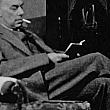Why Men Came to Michigan
by Charles E. Belknap
“The financial panic of 1837 was a great disaster to the entire country and not until the Civil war did the money of the people find a solid foundation.
There had been a universal suspension of specie payments, the prices of foodstuffs had so advanced that bread riots were common in New England cities. Every young man with brain or ambition turned to the west for a home until it seemed all the people in the eastern states were moving. One of the early writers on the history of Michigan said that by 1837 it seemed all New England was coming to the state, every one singing the popular song—
Come all ye Yankee farmers
Who wish to change your lot,
Who’ve spunk enough to travel
Beyond your native spot
And leave behind the village
Where pa and ma do stay.
Come follow me and settle in Michigania,
Yea—yea—yea—in Michigania.
There were different trails leading to the new country. Those from Ohio to the southern end of Lake Michigan and by way of Detroit to the valley of the Grand were the most traveled. Thousands of young men with packs upon their backs and but a few dollars in their pockets left New England for a thousand-mile tramp into a wilderness. The girls remained at home until a cabin in the forest or a shelter in the village was made ready for them. Then they joined parties westward bound and came on either by trail, the river, the ox cart, or the primitive stage to join their mates. It was from such stock that Michigan was first populated and in the life one of these people was a story of privation, adventure and romance. . .
We came to Michigan because the government had given my grandfather a quarter-section (40 acres) of timber land as a reward for his services in the war of 1812. Father came to do the iron work on the boats being built in the shipyard located where the Pantlind hotel now stands.
By stage, river, canal, lake and railroad we arrived in Chicago, then known to the Indians as Chi-eog—“skunk water.” In the getaway from this rightly named place we secured passage on a lumber schooner for Grand Haven, sleeping on the deck without blankets; then by steamer to Grand Rapids.”
The Belknap family's roots were in New York.
Excerpt from The Yesterdays of Grand Rapids by Charles E. Belknap, 1922.

 facebook
facebook
